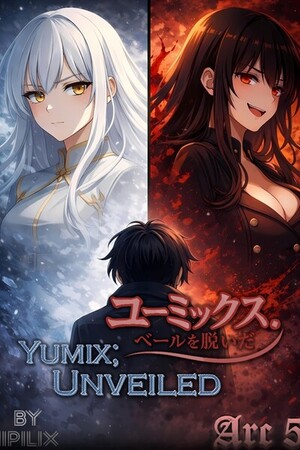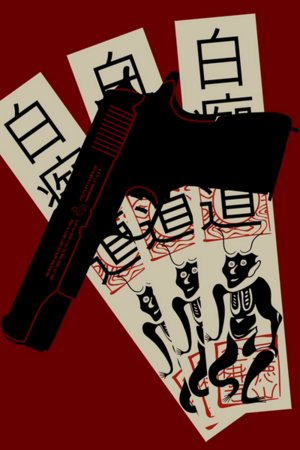Chapter 3:
Chapter 3
What the Frost Leaves Behind
Suhasini makes preparations for Toru to travel by ox-cart; Stuvan says it is not a pleasure trip and a horse will suffice, and will be more manoeuvrable along the tattered mountainsides.
“The reports have all come from this area in the northeast,” says one of the councillors, tracing an oval on the map with her finger. Toru knows of the place – a smattering of villages, populated mostly by Nagashinian migrant workers. Some of the councillors make little effort to hide their wrinkled noses. Nagashinian people propitiate untrue gods; some priests say that is why they are poor.
Suhasini’s brow is furrowed. The dawnlight turns her skin sickly pale. “Who will be sent with him? It can be just a small group, so that Toru is not slowed down.” She is reasonable; but legends are not created from reason. Stuvan says that all the time.
Stuvan is still reclining in his chair, his fingers steepled. “I never said anyone would go with him.”
Toru has known this from the start; it would have been foolish to assume Stuvan would want Toru’s legacy to be stained by something as plebeian as assistance. And it is not a soldier’s place to question his king’s instructions. The simplicity of this comforts him – he has an order. He has to follow it. A straight line from start to finish.
Suhasini’s expression shutters, her movements wooden and jerky. “I only speak in the interest of Toru’s safety. Only one recorded person has killed a Vitara single-handedly, and it ended her.” Toru has heard the name. Every child with dirt and straw in their clothes, every tired blank-eyed widow, every gangly soot-smudged smith’s apprentice – they have all heard the name. Kishia, daughter of Samaira. Great-granddaughter of Bishinya’s founder.
Stuvan sends Suhasihi a stern look; to disagree so brazenly with her husband in front of the court…it is considered disgraceful. “There are signs this winter might be harsh,” she continues. “Perhaps, if he is going alone, we might send him in the spring.”
“And allow the Vitara to tear through more villages? What kind of king would I seem like?”
Suhasini’s jaw sets, but she says nothing more.
Stuvan sits up straight. His face twists as though he has tasted something bitter. “In the old times our soldiers won renown across the continent. Since then our hands have grown soft and our minds fat with foreign ideas. But with the rigorous training set by myself and Master Vihana, we have raised a new generation of warriors who can rival our greatest predecessors.”
The councillors’ faces are open with admiration, and low scattered murmurs rise in a shallow swell before breaking into quietude again. Toru tries to not allow his eagerness to show. Warriors who can rival our greatest predecessors . He will be one of them. He will return to the city to the lighting of lamps and the sweet chorus of cheering crowds, while the Vitara’s corpse decays into shadow in some godless forest.
That afternoon as Toru is combing his hair, his door opens, and Toru knows without turning around that it is Stuvan; he always enters Toru’s chamber without knocking, though he does it slowly, giving time for Toru to gather himself. He glances thoughtfully at the ceremonial bow, the first one that Toru ever won. All the others have been kept on display in various hallways and rooms in the palace – he hasn’t lost a tournament since he was fourteen. He hasn’t lost a fight since a year after that. “I trust these past two days were not too much of a shock for you,” says Stuvan.
Toru hasn’t slept since he was assigned the task. “Never.”
Stuvan stretches out on the divan. He always looks tired, but that is only because his skin has a bone-like undertone to it; in truth he can almost keep up with most men on the training grounds, and up to a few years ago would give even Toru trouble while sparring. “I am not certain what I would do without you.”
“Suffer fewer headaches.” Toru is only half joking.
They share a smile, like boys with an inside joke. It is at times like this that Toru is reminded that Stuvan is a handsome man, in that sharp, angular way. And while Stuvan’s face is now lined and his hair streaked with silver, he still draws admiring looks, from maids, from servant boys, from city people who come to the court for justice. They are all less discreet than they think they are.
No one would assume Stuvan and Toru were related. Where Stuvan is pale, Toru is a deep warm umber, and the cut of his jaw and set of his shoulders is delicate, near effeminate. How you use that spear for so long without fainting, I’ll never understand , Suhasini had said once.
Stuvan sits up and pats the space beside him. Toru sits, fumbling to straighten his tunic collar while speaking to Stuvan. “I hope I can live up to the task you have assigned me.”
Stuvan reaches forward, fixes Toru’s collar. In the sunlight his grey-green eyes gleam like glass. “There will be poems about you a thousand years hence. Your memory will be cast in gold.” He pats Toru’s chest. “You have already made me happy, but once you return, I will be the happiest man in the world.”
***
On the day of his departure, he emerges while the stars are still out. Patches of frost cover the gardens. His walk to the temple is unsweetened by birdsong. He goes barefoot, but he trains barefoot save in the deepest cold, so it does not bother him. At the temple he rests his forehead against the floor. He prays. He thinks, Let this be my repayment to Stuvan . His mind is jumbled and over-active and he cannot pay attention to a single thing the priest is saying.
He returns more tired than when he woke up, and breaks his fast alone; Stuvan and Suhasini are in council. Toru savours his kahwa, burning the roof of his mouth; this is the last precious drop he will have for a long time. He runs his scorched tongue over the earthenware cup, idly wishing he could have had Stuvan’s blessing, his hand steady on his head, on this morning. The last meal they shared yesterday seems distant, a painting seen through a cloudy window.
The walk to the stables is quiet, pelted with the blunt echoes of his footsteps, the shucks of curtains being drawn, the clinks of tables being set. Mekhala has been kept ready, with sacks of supplies strapped to her back. She is of a small, hardy breed, native to the northern plateaus. Toru has eavesdropped on merchants haggling over horses like her in the marketplace: “She’s not meant for show – she’s meant to survive in temperatures that would freeze your lips together.”
Toru draws his fingers through her coarse brown mane. He checks his supplies. Furs, waterskin, hunting knife, rolled breads, pickled vegetables, pickled meat, enough biscuits to last the journey twice over. He will not need the furs just yet. His sword, made of fine light material, feels heavy at his side; he keeps touching its enamelled hilt. After he mounts Mekhala, an attendant hands him his spear, and he heads to the gates. There is no fanfare, no flags or horns or dancers decked in paint and gold - there is nothing to celebrate yet.
He is almost glad that Stuvan is not here to see the smudged half moons beneath his eyes. Even though he knows that Stuvan is not in his chamber, he glances up at Stuvan’s window, where as a boy he used to sit and watch the world slot into different colours through the stained glass. He turns away quickly. Sentimentality is a hurdle to duty – it is frowned upon.
He nods to the guards, and a moment later the gates screech open and the portcullis is lifted. Mist is rolling into the hills. The first few steps are dreamlike. The cold has not yet sunk into him. He is still in the heart of Satra, and the trees and the wind are benevolent, tame, used to people weaving through.
As he passes a crumbling temple perched at the edge of a cliff, he turns back to look at the palace, but the mist has closed around it. It may as well not be there at all.
***
Toru wakes to a world blotched in black and white.
He brushes snow off himself, shakes it out of his hair. His throat is raw with thirst. He takes out his waterskin but his fingers won’t close properly around it; they seem connected to his body by strings that he cannot pull. He clenches them, again and again, till feeling returns to them, and he can drink deep.
As he moves to get on Mekhala he slips in slush, twisting his ankle and collapsing on his backside. Not even a few days in, and he’s already landed himself a minor injury. At this rate I’ll do the Vitara’s work for it , he thinks, grimacing at the dampness on the seat of his pants. He swings onto Mekhala, urging her forward with soft clicks.
Ghost-quiet. Leached-bone sky. The crunch of Mekhala’s hooves in the gravel and stones grows softer as snow drifts around them like ashes. The day wades on in melting shades of moon-grey and bruise-lilac, and the road grows thinner and thinner, and he cannot tell where the ground ends and the snow begins. His arm is heavy from carrying his spear for so long, even though it rests against his shoulder. Weariness drapes over him, weighing him down. He slaps his cheek but it does not hurt as much as it should.
The wind picks up, and he flinches from a whip of snow in his eyes. Mekhala stops and rears her head, nickering unhappily.
It’s fine. They can rest for a short while. Fire and food will coax the blood back to Toru’s fingers and toes. He scans the way ahead. To his right the mountain lists into a sheer drop. To his left, it stretches up, too steep for Mekhala to climb. Some trees grow sideways out of the slope, like they got tired of people bumping into them on the road and decided to shift where they would be unbothered.
Somewhere here can be their spot. A few pieces of meat won’t put a dent in his food supply – he has enough biscuits for weeks, if he rations to half or third portions. But even though his mind is growing foggy, he would rather save the meat for more dire circumstances.
He swings off Mekhala and unties the bag heavy with biscuits, and walks ahead to start making himself a fire. Down below the valley is shrouded in mist – he is reminded of steam rolling on bathwater. He is careful, stepping deliberately, like he is demonstrating how to walk to a toddler.
The snow beneath his foot gives. He is falling. “No, no!” he thinks. He lurches wildly back towards the path, scrambling for something to grab. His fingers tangle themselves in the branch of one of the trees on the cliffside, and slither down before coming to an abrupt halt at a knot. Toru hangs there, swaying, with the sound of his breath in his ears.
Slowly, he clambers back onto the path, telling himself to stop shaking.
Mekhala is where he left her, snuffling and restless, appearing concerned for her human. “I’m fine,” he says, hoarse. “I’m fine.” The wind lashes against him. Where is his pack of biscuits? It must have dropped on the road. He gropes around, on his hands and knees in the dying light.
He does not find it.
Actions



Please sign in to leave a comment.